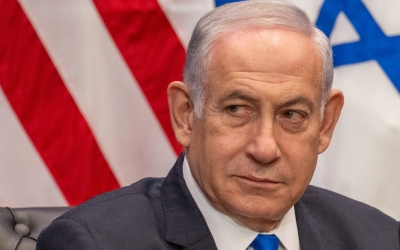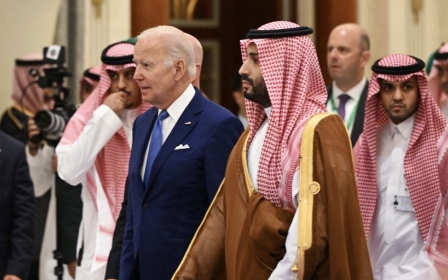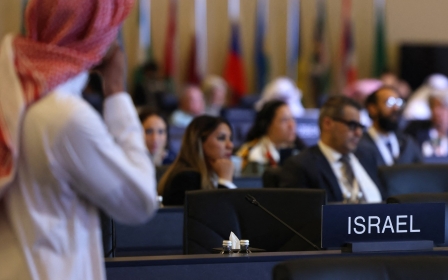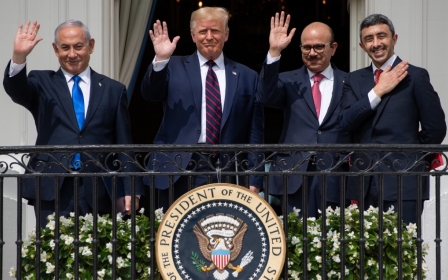Saudi-Israel normalisation deal: Who will be the architect?
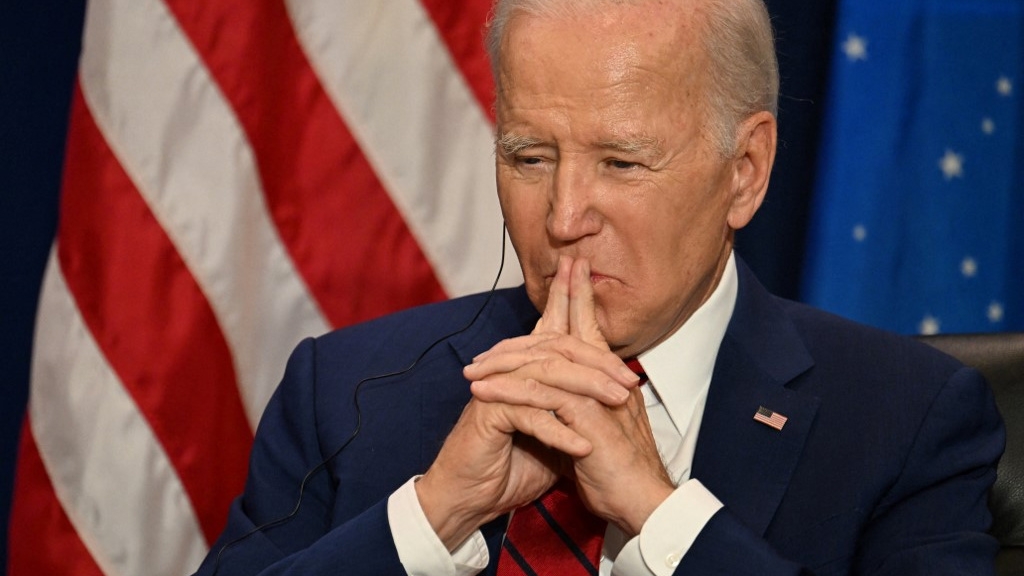
The first visit of a serving Israeli cabinet minister to Saudi Arabia has escalated chatter and speculation that a normalisation deal between the two countries is imminent.
The reality is that a Saudi-Israel deal will happen - it is a question of when, not if. The real question is who gets to be the architect? The three potential parties are not bosom buddies, nor are they just out to do each other favours. They have very specific interests.
One school of thought is that US President Joe Biden wants to be the deal’s handmaiden, viewing it as a vital foreign policy success ahead of the 2024 election. He does not have much to take to a sceptical electorate. Biden also does not want to see Saudi Arabia getting closer to China.
Others believe he might not be as desperate as some make out. Do US voters care that much? In addition, many are concerned about the prospect of uranium enrichment on Saudi soil, and that might include Biden.
Israeli Prime Minister Benjamin Netanyahu wants the deal for his historic legacy, allowing him to pose as the Israeli leader who sealed a deal with one of the Arab world’s richest powers, adding rocket fuel to the normalisation process not just in the Middle East, but further afield. This would signal a renewal of ties with the US, after it took Netanyahu nine months to get a face-to-face meeting with Biden. It would also distract from his own ongoing legal wrangles.
New MEE newsletter: Jerusalem Dispatch
Sign up to get the latest insights and analysis on Israel-Palestine, alongside Turkey Unpacked and other MEE newsletters
As for the Saudi crown prince, Mohammed bin Salman has a very detailed shopping list, including advanced US weaponry, a defence agreement and a civilian nuclear programme. Unlike the other two leaders, he is not desperate; he can afford to be patient, a quality not on display when he first rose to the top of Saudi politics.
Mohammed bin Salman does not face elections, a precarious extremist coalition, or the prospect of going to jail. He does not look as though he would rush blindly into any deal with Israel, a criticism some have made of the UAE and Bahrain.
Significant demands
A quick glance at recent opinion polls will also remind Mohammed bin Salman that the likely successor to Biden is former US President Donald Trump. The Saudi crown prince barely has a relationship with Biden, who was compelled to go to Jeddah and do the infamous fist bump because of the economic situation and the price of oil.
Biden had to face down the increasingly influential wing of the Democratic Party that likes neither Saudi Arabia nor Israel. Mohammed bin Salman may be asking himself: why should he be giving any prizes to Biden?
A fulsome Israeli commitment on the future of Al-Aqsa must be a cornerstone of any agreement
This has encouraged him to set the demands high, testing how badly Biden wants this deal. If the US is prepared to agree to his terms, notably allowing Saudi Arabia to have a civilian nuclear programme and a full defence pact, then Mohammed bin Salman may move forward. If Biden says no, possibly because of Democratic opposition, the Saudi leadership will adapt accordingly and keep its long-term security options open.
But where does this leave the Palestinians? The Abraham Accords were notable for the total absence of Palestinian input at every stage. The deal came as a shock to the Palestinian leadership, which knew nothing of the talks and had no relationship with the Trump administration at the time.
The UAE and Bahrain showed no inclination to include them, and have pushed their relations with Israel forward to an extraordinary degree. The one condition was that Israel abandon its plans for formal annexation, which Netanyahu was only too willing to do, given that he believes de facto annexation is in the bag and formal annexation is just a matter of time.
Meaningful transformation
The Palestinian leadership is clearly nervous about Saudi Arabia’s plans. Riyadh has made clear that it expects significant movement on the Palestinian file, although quite what this means is not clear. At least the Palestinian leadership is engaged, even if not as effectively as many might wish.
Palestinian President Mahmoud Abbas visited Saudi Arabia in April, holding talks with the Saudi king and crown prince. Hamas did likewise, ending a freeze in talks that had lasted since 2015. Saudi Arabia has also appointed its first non-resident ambassador to Palestine, a sensible move to engage Ramallah more.
The Palestinian question is a risk for the Saudi leadership. The future of Jerusalem, in particular Al-Aqsa Mosque, is a sensitive issue for a country that prides itself on being the home of Mecca and Medina. A fulsome Israeli commitment on the future of Al-Aqsa must be a cornerstone of any agreement. Many Palestinians will hope that Saudi Arabia sticks to the contours of its Arab Peace Initiative, requiring full withdrawal from the occupied territories in return for full peace.
The current Israeli coalition is the most extreme in the nation’s history. The likes of Finance Minister Bezalel Smotrich and National Security Minister Itamar Ben Gvir would crash the coalition rather than concede anything meaningful to the Palestinians. They want to see the Palestinian Authority dismantled, while Netanyahu wants it to remain acting as Israel’s security arm to protect the occupation.
If the Israeli coalition did fall apart, would a new centre-right coalition form specifically to take forward a deal with Saudi Arabia? Widespread distrust of Netanyahu would be the key obstacle.
What all statesmen have to remember is that the Palestinian issue is at the core of the conflict. Israel and Saudi Arabia are not at war, and if anything, they have reasonable under-the-table relations. They share certain common interests. But real sustainable peace that could witness a genuine, meaningful transformation of the region requires an end to the systematic oppression of the Palestinian people, and the removal of the system of apartheid that they endure every day.
The US leadership must also understand this. If it is to reward these two American allies handsomely, then it must be for a long-lasting solution - not a peace of diplomatic theatre, with no substance.
The views expressed in this article belong to the author and do not necessarily reflect the editorial policy of Middle East Eye.
Middle East Eye delivers independent and unrivalled coverage and analysis of the Middle East, North Africa and beyond. To learn more about republishing this content and the associated fees, please fill out this form. More about MEE can be found here.



